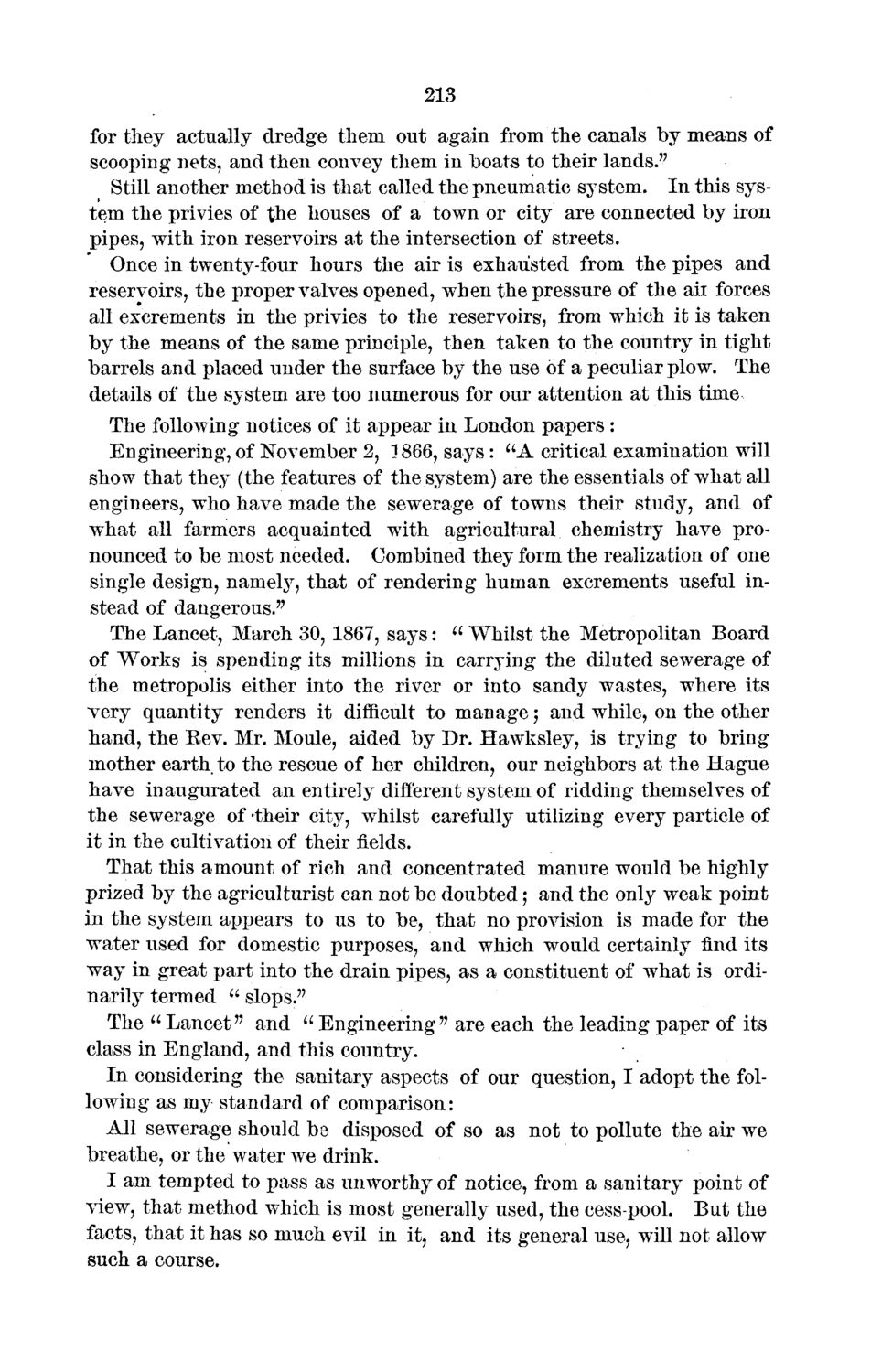| |
| |
Caption: Board of Trustees Minutes - 1872
This is a reduced-resolution page image for fast online browsing.

EXTRACTED TEXT FROM PAGE:
213 for they actually dredge them out again from the canals by means of scooping nets, and then convey them in boats to their lands." Still another method is that called the pneumatic system. In this system the privies of the houses of a town or city are connected by iron pipes, with iron reservoirs at the intersection of streets. Once in twenty-four hours the air is exhausted from the pipes and reservoirs, the proper valves opened, when the pressure of the aii forces all excrements in the privies to the reservoirs, from which it is taken by the means of the same principle, then taken to the country in tight barrels and placed under the surface by the use of a peculiar plow. The details of the system are too numerous for our attention at this time The following notices of it appear in London papers : Engineering, of November 2, 1866, says: "A critical examination will show that they (the features of the system) are the essentials of what all engineers, who have made the sewerage of towns their study, and of what all farmers acquainted with agricultural chemistry have pronounced to be most needed. Combined they form the realization of one single design, namely, that of rendering human excrements useful instead of dangerous." The Lancet, March 30, 1867, says: " Whilst the Metropolitan Board of Works is spending its millions in carrying the diluted sewerage of the metropolis either into the river or into sandy wastes, where its very quantity renders it difficult to manage; and while, on the other hand, the Eev. Mr. Moule, aided by Dr. Hawksley, is trying to bring mother earth, to the rescue of her children, our neighbors at the Hague have inaugurated an entirely different system of ridding themselves of the sewerage of *their city, whilst carefully utilizing every particle of it in the cultivation of their fields. That this amount of rich and concentrated manure would be highly prized by the agriculturist can not be doubted $ and the only weak point in the system appears to us to be, that no provision is made for the water used for domestic purposes, and which would certainly find its way in great part into the drain pipes, as a constituent of what is ordinarily termed " slops." The " Lancet" and " Engineering" are each the leading paper of its class in England, and this country. In considering the sanitary aspects of our question, I adopt the following as my standard of comparison: All sewerage should be disposed of so as not to pollute the air we breathe, or the water we drink. I am tempted to pass as unworthy of notice, from a sanitary point of view, that method which is most generally used, the cess-pool. But the facts, that it has so much evil in it, and its general use, will not allow such a course.
| |